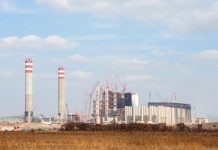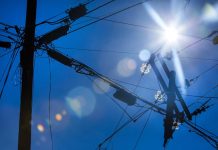Eskom has explained that on 10 March 2020, Koeberg nuclear power plant Unit 1 was manually tripped by the operators in line with the operating procedure.
Eskom said: “The reason for the manual trip was as a result of the increasing temperature on the secondary side of the plant due to degraded heat removal (or cooling) capability because the pump that remained in service was supplying a heat exchanger that was degraded and not able to sufficiently remove heat.
“The circulating cooling water system pump that tripped was due to low level in the suction pit as a result of the drum filter that was clogged by an acute ingress of marine life (jellyfish and fish).”
According to the power utility, on a normal basis, Koeberg units are able to survive a trip of one circulating cooling water system pump.
The actions required from the power plant operators are to reduce power to below 60% and to ensure that temperatures of various components on the secondary side stabilises.
In this case, the temperature did not stabilise due to the heat exchanger remaining in service had reduced heat transfer efficiency and was planned for maintenance this week.
Eskom said the excess marine life and debris has been cleared off the drum filter and it is back in service. The level in the suction pit has sufficiently recovered and the circulating water system pump has been put back in service and no anomalies have been noted. Upon inspection, it was found that the pump had not been damaged as initially feared.
“The required technical assessments and regulatory approvals have been obtained to start-up and safely return the Koeberg Unit 1 back on the grid. The current projected synchronisation date is Sunday, 15 March 2020,” the utility stated.
Stage 4 loadshedding continues
Eskom advises that Stage 4 loadshedding will continue until Friday evening. “We expect that loadshedding, at reduced stages, may continue into the weekend. We are currently utilising emergency generation reserves to supplement supply.
“Some generation units are expected to return to service this evening and tomorrow. This, together with reduced weekend demand, will help ease the supply constraints and reduce the stage of loadshedding,” the power company said.
As the utility’s ageing fleet is currently constrained, unpredictable and vulnerable, Eskom advises South Africans that the stage of loadshedding may change at short notice should there be any unexpected change in the generation system performance.





